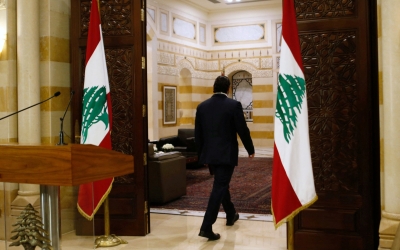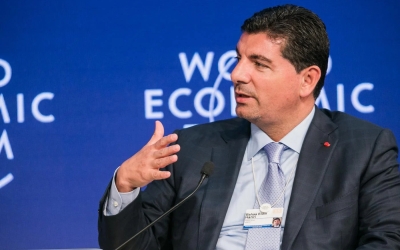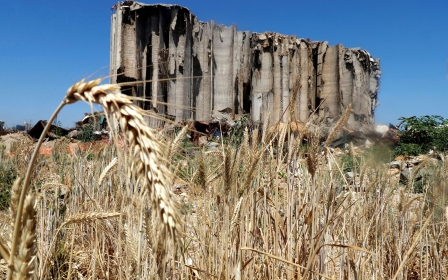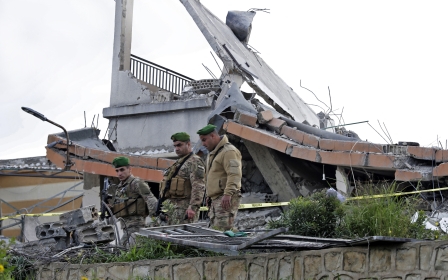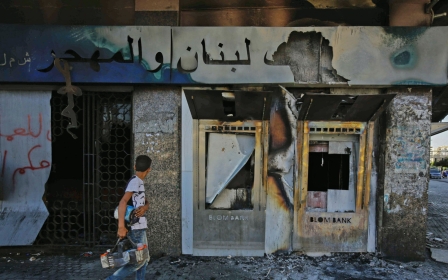Lebanon elections: Post-Hariri, landscape of Sunni vote looks uncertain
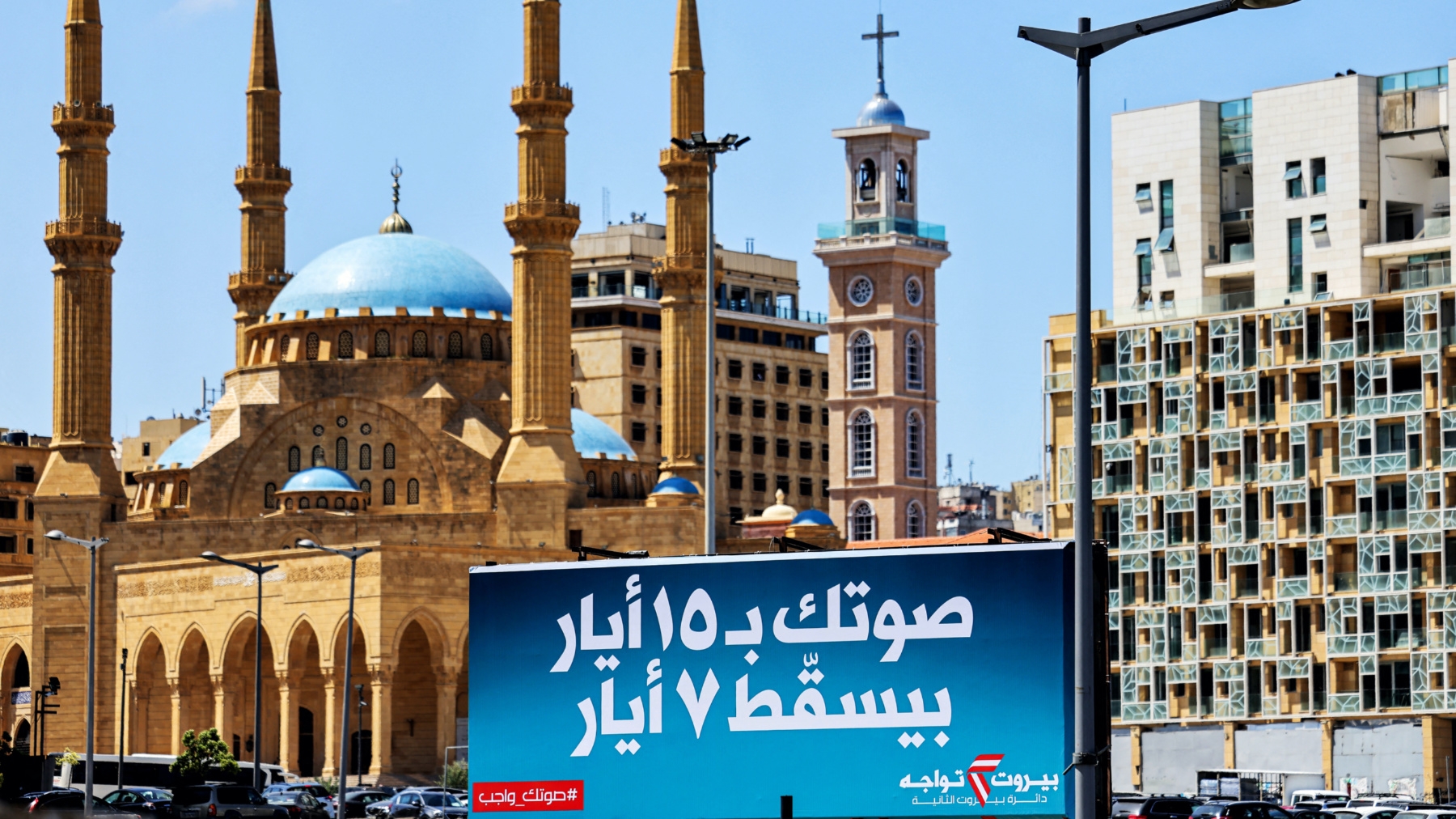
Upon entering the southern Lebanese city of Saida from the north, visitors are greeted by a flamboyant mosque displaying Ottoman architecture.
The Bahaeddine Hariri Mosque was built by the late prime minister Rafic Hariri and named in memory of his father, who lived and raised his three children in the coastal city.
The mosque, which was officially opened almost a year after Hariri's assassination in 2005, stands as a testimony to his family's presence and influence in Saida, where the name Hariri has long dominated the political landscape.
Ever since the 1992 parliamentary elections, the first held after the end of the Lebanese civil war in 1990, Bahia Hariri - Rafic Hariri's sister and aunt of another former prime minister, Saad Hariri - has occupied a seat representing the city, a seat that she is set to hold until the upcoming elections on 15 May 2022.
But in January, Saad Hariri announced that he would be suspending his involvement in politics, as well as that of his party the Future Movement, the largest Sunni political bloc in the heavily sectarian country.
Consequently, and in an act of support for her nephew's decision, Bahia said she would not be standing for re-election, thus depriving the city of a candidate from the Hariri family for the first time in three decades.
The move comes at a time of major upheaval for Lebanon as a years-long economic crisis, which has already pushed vast parts of the country into poverty, continues to rumble on, exacerbated by the devastating port explosion in the capita, Beirut, in August 2020 and the war in Ukraine, which has had a dramatic impact on food imports.
In the line of fire is Lebanon's political class, whose entrenched positions, nepotism and corruption are widely blamed for much of these problems.
Going it alone
Hariri's decision to suspend political activity was accompanied by clear instructions to the members of his parliamentary block that anyone who wanted to run for election would have to do it without being associated with the Future Movement.
'Hariri was very clear during the last meeting. He advised each and everyone to assess his own situation in his electoral district and that's what I did'
- Sami Fatfat, MP
Sami Fatfat, the youngest current member of parliament and part of the Future Movement parliamentary bloc, announced he would still be running for elections in the second northern area of Lebanon, which includes Tripoli, Minye and Doniye, despite his leader's decision.
Fatfat explained to Middle East Eye that, after Saad Hariri announced his decision, the former premier met with his parliamentary bloc and told them that he would not oppose anyone who decided to run for elections, but anyone associated with the party would have to resign before doing so.
"Hariri was very clear during the last meeting. He advised each and everyone to assess his own situation in his electoral district, and that's what I did," he said.
"I assessed that I will not accept leaving my area to a sweeping victory by our adversary, [the Shia movement] Hezbollah."
Fatfat added that, despite predictions from some commentators that Hariri's announcement meant the end of his political career, there was still life in the dynasty.
"Hariri suspended his political activity. He did not retire," said Fatfat.
Long before the former prime minister withdrew from political life, the former head of internal security forces, Ashraf Rifi, started to distance himself from Hariri, his erstwhile ally.
In the 2018 general election, Rifi ran against the Future leader in Tripoli, the capital city of the north. Today, he is counting on the party's scattered votes to secure a parliamentary seat, bolstered by unconfirmed reports of Saudi support for his list.
Tripoli will also be home to a competing list supported by Prime Minister Najib Mikati.
While Mikati had decided not to personally run in the elections and maintain a distance as the head of the government, early reports have signalled that he will be able to secure the same number of seats he managed to win in 2018.
While many experts predict that the Hariri political vacuum will be filled with regional leaders, others consider his decision as a political manoeuvre aimed at reshaping the results of the elections and, consequently, putting pressure on Riyadh.
Saudi power play
Houssein Ayoub, political analyst and editor-in-chief of news site 180post, told MEE that although Hariri would not personally be directly involved in the upcoming elections, he would nevertheless be observing it closely, as the results could have a determining impact on his political future.
He said he saw Hariri's suspension of his political campaign as a last-ditch attempt to prove his worth to longtime sponsor Saudi Arabia, who ended their support for the former premier in recent years.
"Hariri's wager in the upcoming elections is to show Saudi Arabia what will happen to the Sunni votes if he is not politically present," said Ayoub.
"He will try to show the Saudis that the absence of the Future Movement will result in an increase of seats to Saudi's main enemy, Hezbollah."
Many members of parliament belonging to the Future Movement publicly supported their leader's decision and chose to suspend their participation in the upcoming elections.
But while Saida, Hariri's hometown, did not foster any candidate close to his political circle, Beirut is a different case.
A longtime Hariri loyalist and often regarded as his mentor, former prime minister Fouad Siniora has been seen as taking up Hariri's mantle in the upcoming vote.
Unable to raise and support a list of candidates in Saida, which is also his hometown, Siniora declared his support for a list of candidates in Beirut. Having been the only political figure invited to a Saudi iftar meal, many now see this list as the main force for Saudi-backed Sunni politicians in the country.
No 'political earthquake'?
Mohammad Chamseddine, a researcher at Information International, said that three months after Hariri's decision, the expected political earthquake had amounted to no more than a political breeze.
"In 2018 [parliamentary elections], the Sunni candidates were 304. Today the candidates rose to 311. This number alone reflects that there was no Sunni boycott following Hariri's decision," he said.
Chamseddine argued that although many prominent Sunni figures decided not to run for elections, no call for a boycott by Sunni political and religious influencers was put in place.
He, therefore, anticipated that the Sunni vote, which accounted for almost 44 percent of those who were eligible to vote in 2018, would largely remain the same.
"Hariri's decision did not have the awaited impact that some believed it would have, including the postponement of the elections," Chamseddine said.
"But the absence of a unified Sunni vote in many areas that once supported him, and with the existence of many lists competing for the Sunni seats and votes, Hezbollah and its allies, with their unified voting blocks, may have the swing vote that can decide the Sunni electoral map in the upcoming elections," he said.
This article is available in French on Middle East Eye French edition.
Middle East Eye delivers independent and unrivalled coverage and analysis of the Middle East, North Africa and beyond. To learn more about republishing this content and the associated fees, please fill out this form. More about MEE can be found here.


